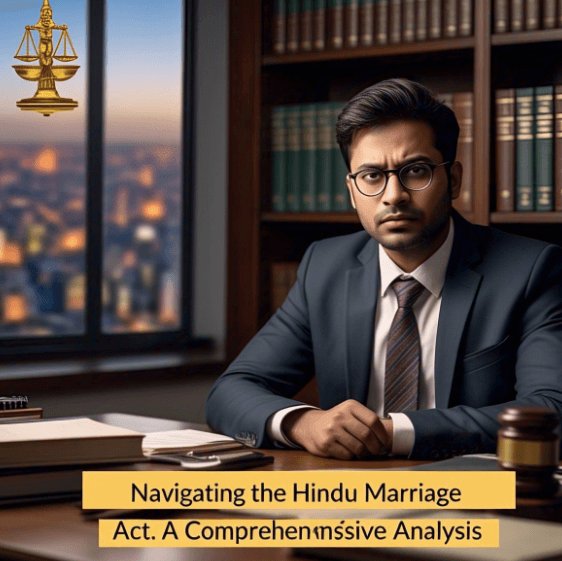Special Power of Attorney for Family Law Matters in India
Navigating the complexities of family law in India can be challenging, especially when circumstances prevent direct involvement. The Special Power of Attorney (SPA) emerges as a crucial legal instrument, empowering a trusted individual to act on one’s behalf. This article demystifies the SPA within the context of Indian family law, guiding you through its importance, creation, and implications.
Understanding Special Power of Attorney
What Is a Special Power of Attorney?
The Special Power of Attorney is a legal document granting one person—the principal—the power to authorize another person—the agent or attorney-in-fact—to perform specific legal acts on their behalf. Unlike a general power of attorney, which grants broad powers, an SPA is tailored for distinct tasks, particularly relevant in sensitive family law matters.
Importance in Family Law Matters
In family law, the SPA is invaluable. It allows individuals to manage legal obligations related to marriage, divorce, child custody, and property settlements without being physically present. This is especially beneficial for those residing abroad or unable to attend court proceedings due to health or other constraints.
Crafting a Special Power of Attorney
Essential Components
A robust SPA for family law matters should clearly identify the principal and agent, detail the specific powers granted, and stipulate any limitations. It must be drafted within the legal framework provided by the Indian Power of Attorney Act, 1882, ensuring it’s legally binding.
Legal Requirements and Validation
The document must be thoroughly drafted, signed by the principal, and attested by a notary or a diplomatic officer (for Indians abroad). Registration may be required for certain acts, like property transfer. It’s crucial to adhere to the specific requirements of the state in which it will be used, as laws can vary.
Implementing the Special Power of Attorney
Scope of Authority
The SPA should spell out the agent’s powers with precision—whether it’s to represent the principal in court, negotiate settlements, or manage property transactions. Clear boundaries prevent misuse and ensure the agent’s actions align with the principal’s intentions.
Revocation and Duration
The principal retains the right to revoke the SPA at any time, provided they are mentally competent. It’s also subject to expiration; either upon completion of the specified task or at a date mentioned in the document. Understanding these aspects is key to maintaining control over the delegated powers.
Common Questions and Concerns
Ensuring Agent Reliability
Choosing a trustworthy agent is paramount. They should have the principal’s best interests at heart, understand the family dynamics, and preferably have some legal knowledge. It’s also wise to discuss the responsibilities and expectations upfront to avoid misunderstandings.
Legal Support and Guidance
Given the legal intricacies, consulting a lawyer skilled in family law is advisable. They can assist in drafting a precise SPA, advise on the legal ramifications, and ensure compliance with the latest Indian laws and regulations.
Final Thoughts
The Special Power of Attorney stands as a powerful tool in the realm of Indian family law, enabling individuals to navigate legal challenges through a trusted representative. By ensuring it’s carefully drafted, legally valid, and used responsibly, the SPA can safeguard interests and facilitate the management of complex legal matters from afar.
The Crux of Special Power of Attorney in Family Law
To summarize, the Special Power of Attorney allows individuals to appoint someone they trust to handle specific family law matters on their behalf in India. It’s essential for ensuring legal matters are attended to, even in one’s absence, but requires careful consideration, precise drafting, and adherence to legal formalities to be effective and secure.
FAQ on Special Power of Attorney for Family Law Matters in India
1. What is a Special Power of Attorney (SPA)?
An SPA is a legal document that grants a designated person the authority to perform specific legal actions on behalf of another person in family law matters.
2. Can an SPA be used for divorce proceedings in India?
Yes, an SPA can be used to authorize someone to act on your behalf in divorce proceedings.
3. Is an SPA valid across all Indian states?
While generally recognized, the specifics may vary, so it’s essential to ensure compliance with the laws of the state where it will be used.
4. How do I choose an agent for my SPA?
Select someone trustworthy, ideally with knowledge of your family matters and, if possible, some legal understanding.
5. Does the SPA need to be notarized in India?
Yes, notarization is a common requirement to ensure the SPA’s authenticity.
6. Can I revoke my SPA?
Yes, as long as you are mentally competent, you can revoke your SPA at any time.
7. Is registration of an SPA mandatory?
It depends on the act it covers; for property transactions, registration is often required.
8. How specific does an SPA need to be?
It should clearly outline the powers granted to the agent, being as specific as possible to avoid misuse.
9. Can an SPA be used for child custody matters?
Yes, an SPA can authorize someone to make decisions or represent you in child custody matters.
10. What happens if my SPA agent misuses their power?
You can revoke their power and may also pursue legal action against them for any misuse.
11. Can I use an SPA if I’m living abroad but need to manage family law matters in India?
Yes, SPAs are particularly useful for NRIs (Non-Resident Indians) to manage legal affairs without being physically present in India.
12. How long is an SPA valid?
The validity period should be specified in the document; it can be set for a specific duration or until the completion of the task.
13. Do I need a lawyer to draft an SPA?
While not mandatory, consulting a lawyer ensures that the SPA meets legal requirements and accurately represents your intentions.
14. Can an SPA cover multiple family law matters?
Yes, but it must clearly specify each matter and the extent of power granted for each.
15. What is the difference between a General Power of Attorney and an SPA?
An SPA is specific to certain acts or matters, while a General Power of Attorney grants broad powers across various aspects.
16. Can I have multiple agents in an SPA?
Yes, you can appoint multiple agents, but their roles and responsibilities should be clearly defined to avoid conflicts.
17. Is an SPA made in India valid for use in other countries?
The validity abroad depends on the other country’s laws and whether the SPA meets their requirements, possibly requiring legalization.
18. How can I ensure my SPA is legally binding?
Ensure it is properly drafted, signed, notarized, and registered (if necessary), following the legal framework in India.
19. Can an SPA be used to sell property?
Yes, you can grant an agent the power to sell property on your behalf through an SPA.
20. What if my appointed agent is unable to fulfill their role?
You can revoke the current SPA and appoint a new agent by drafting another SPA.
21. How do I revoke an SPA?
Typically, you issue a formal revocation document, which should also be notarized and, in some cases, registered.
22. Can an SPA be used for financial transactions related to family law matters?
Yes, you can grant an agent power to handle specific financial transactions.
23. What should I do if the SPA’s powers need to be changed?
You must revoke the current SPA and create a new one that reflects the updated powers.
24. Can an SPA be used for marital agreements?
Yes, an agent can negotiate and sign marital agreements on your behalf.
25. How do I prevent misuse of an SPA?
Choose your agent carefully, clearly define the powers granted, and monitor their actions as much as possible.
26. Can an SPA expire automatically?
Yes, if it includes an expiration date or specifies that it’s valid only until the completion of a certain task.
27. What are the consequences of not having an SPA when needed?
Without an SPA, managing family law matters from afar can be significantly hampered, potentially delaying or complicating legal processes.
28. Can an SPA be digitally signed?
India’s laws on digital signatures are evolving, but traditionally, a physical signature is required, especially for matters like property transfer.
29. How can I ensure my SPA is executed as intended?
Communicate clearly with your agent, provide them with all necessary information, and consider appointing a legal advisor to oversee the process.
30. Where can I get more information about drafting an SPA for family law matters in India?
Consult a lawyer specialized in family law or the Indian legal system for tailored advice and assistance in drafting an SPA.
















